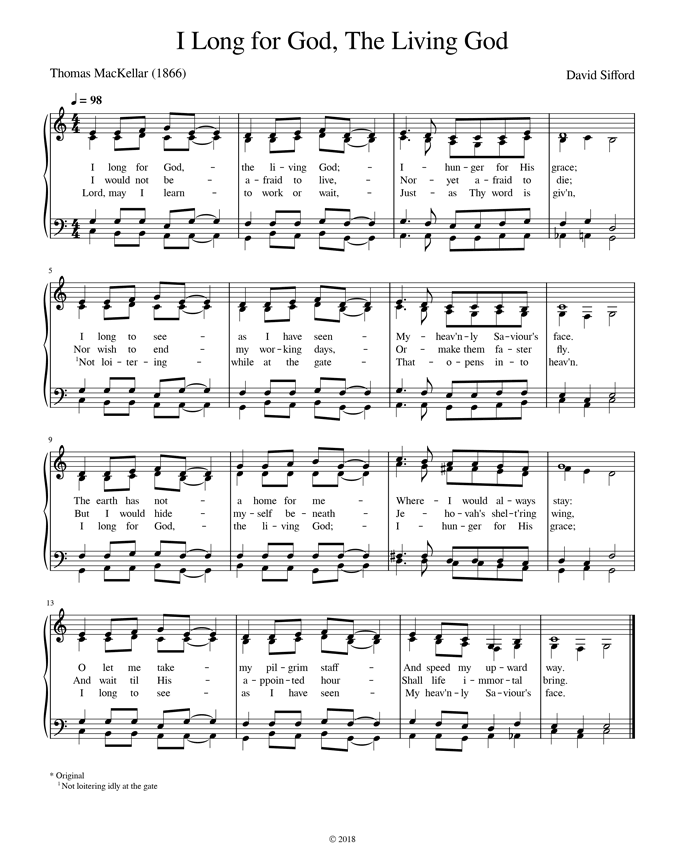Acts 5:41 – “And they departed from the presence of the council, rejoicing that they were counted worthy to suffer shame for his name.”
This has seemed odd to me, almost oxymoronic — worthy to suffer. If I’m a child of God, why would I be worthy to suffer? Shouldn’t I be worthy (by adoption and grace) to not suffer? Wouldn’t a king protect his child so he wouldn’t suffer, thinking he is surely not worthy of suffering, being the king’s child?
Ah, the great pride and reasonings of the carnal mind and heart. 🙂
Thankfully, the Lord does not think as we do, and in His great wisdom has a better way — there is worth in suffering for Him.
But why? Or how does that work?
Here is Puritan Dr. John Gill on the above verse:
And they departed from the presence of the council
Having been threatened and beaten by them:
rejoicing that they were counted worthy to suffer shame for his name;
Beza’s ancient copy, and others; the Vulgate Latin, and Arabic versions read, “for the name of Jesus”; in which name they were forbid to speak, and for speaking in it they were beaten; the Alexandrian copy, and the Syriac version read, “for the name”: that is, for God, for the glory of God, and in the cause of God; “the name” is often used in Jewish writings for God:
the shame they suffered for him was by being scourged with forty stripes save one; which was reckoned an infamous and ignominious punishment, and which was inflicted on persons guilty of very scandalous crimes: but this gave the innocent minds of the apostles no uneasiness; they accounted it an honour conferred on them to be called to suffering for the sake of God and Christ, and in so good a cause; they did what Christ exhorted them to, (Matthew 5:11) which shows they had much of the presence of God, and large measures of grace communicated to them, by which they were supported; and thus cheerfully bore all indignity and reproach, for the name of Christ, which was exceeding dear and precious to them.
The following are several things I’ve collected regarding this topic as I’ve been going through the writings of Thomas Manton:
From Manton’s “A Treatise of Self-Denial”, which you can read here or listen to here. (BTW, I highly recommend this treatise):
5. Whatever God doth to his children, it is with aims of good; he is goodness itself, more apt to do us good than the fire to burn or the sun to shine. Consider, God’s nature is most alien from other courses, he doth not ‘willingly afflict or grieve the children of men.’ It is for our sakes that he puts on this rigour; the scripture speaks of it as a forced dispensation. If a friend should undertake a business that is contrary to his nature and disposition to pleasure us, we are the more obliged to him: so it is God’s great condescension that he should take the rod in his hand, and that he should use it to our profit, we are bound to acknowledge it.
If God doth punish, it is not that he delights in punishment; but he doth punish us here that he may not punish us for ever. Who would not rejoice, that, if when he owed a debt of a thousand pound, the creditor should require but twenty shillings? It is God’s mercy that we shall suffer in this world, that we may not suffer in the world to come: 1 Cor. xi. 32, ‘When we are judged, we are chastened of the Lord, that we may not be condemned with the world.’
There is often a great deal of mercy in affliction. After the sin of Adam, there could not be a more gracious nor more wise invention than affliction to wean our affections from the delight of the senses, and to meeken the spirit.
And if God should not deal thus with us, we had cause to complain, as if he were too gentle; as we have cause to complain of that physician that lets his patient die, because he will not put him to the trouble of physic; or as Eli’s children had cause to complain of their father, because he was so indulgent; and Amnon of David.
It is a great judgment to be let alone. When God was angry with Ephraim, what is his sentence? Hosea iv. 17, ‘Ephraim is joined to idols, let him alone.’
It is an honour that God is mindful of us, that he will give us suitable corrections. If a man see a serpent creeping upon another while he is asleep, though he give him a great blow, yet it is a courtesy to him to kill that serpent that would destroy him; so God does but kill that serpent that would kill us. We are chastised, but it is only to destroy and kill sin.
But suppose we could see no good in the affliction, yet we are bound to believe there is good in it, and not to have hard thoughts of God. Alexander, when his physician was accused that he would poison him in such a potion, takes the letter in one hand, and shows it his physician, and drinks off the potion in confidence of his trust and fidelity. Distrust will make lies of God, as if he meant to hurt and wrong us; but we should say as Christ did, ‘The cup that my Father hath given me, shall I not drink it?’ We should trust God’s potion.
We are dearer to God than we can be to ourselves; he is more solicitous for our good, than we are for our own. God loves the lowest saint infinitely more than the highest angels love God.
From Manton, sermons on Phil 3, sermon vi, which you can read here:
Secondly, The fellowship of his sufferings, ‘that I may be conformable to his death.’ Here is the second privilege, conformity to the death of Christ; so the apostle accounts it in this place. Here take notice,
1. Those that would be partakers of Christ must not fancy to themselves an easy life free from all sufferings, but such a condition as they may be conformable to the death of Christ: Rom. viii. 17, ‘If so be that we suffer with him, that we may be also glorified together.’ We must be partakers of his sufferings if we would be partakers of his kingdom. If we be dead with him, and suffer with him, ‘we shall also reign with him,’ 2 Tim. ii. 12. The way to eternal salvation is to tread in Christ’s steps, by the cross to come to the crown.
2. These sufferings for Christ should not seem grievous to God’s children, and they should be so far from shunning sufferings when God calls them to it, or from any repining or heartless discouragement, that they ought rather to think it their glory, and their great honour and happiness; for Paul reckons it among his advantages.
And elsewhere in scripture we are bidden to rejoice in it, if we suffer anything for Christ and his truth; for indeed there is great comfort and joy to be had in suffering for him and with him in his mystical body. They that have tasted this sweetness count all things but loss and dung in comparison of it; and so might we rejoice and be exceeding glad if we consult with the privileges of the Spirit rather than the interest of the flesh: James i. 2, ‘Count it all joy when ye fall into divers temptations’; Mat. v. 11, 12, ‘ Blessed are you when men shall revile you, and persecute you, and shall say all manner of evil against you falsely for my name’s sake: rejoice, and be exceeding glad, for great is your reward in heaven.’
3. The two grand things which lighten all our afflictions and sufferings for Christ are those mentioned in the text — fellowship with him, and conformity to him.
[1.] Fellowship with him, ‘That I may know the fellowship of his sufferings’; 1 Peter iv. 13, ‘But rejoice, inasmuch as ye are partakers of Christ’s sufferings, that when his glory shall be revealed, ye may be glad also with exceeding joy.’ How partakers of his sufferings? He suffers with them, and communicates his Spirit, and that in a larger measure of comfort than to the rest of his people. As a special measure of wisdom and strength, so a more liberal allowance of supports and comforts: Col. i. 24, ‘Who now rejoice in my sufferings for you, and fill up that which is behind of the afflictions of Christ in my flesh’, the leavings.
The sufferings of christians are the sufferings of Christ, and the filling up of his sufferings. Not as if his personal sufferings for the redemption of sinners were imperfect and to be supplied by our sufferings; that cannot be, for ‘by one offering he hath perfected for ever them that are sanctified’; but partly because such is the sympathy between Christ and believers, that their sufferings are his sufferings: Acts ix. 4, ‘Saul, Saul, why persecutest thou me?’ How persecute me? Christ was far enough out of his reach, but he persecuted him in his members. When the toe is trod upon the tongue will cry out, You hurt me. And partly because so strict is the union which is between them and Christ, that he and they make up but one mystical Christ: 1 Cor. xii. 12, ‘For as the body is one, and hath many members, and all the members of that one body, being many, are one body; so also is Christ.’ That is not Christ personal, but Christ mystical; they are one; he partakes of their sufferings, and they of his Spirit.
[2.] Conformity to Christ. We must be like him whom we have chosen for our head and chief. What do we with Christianity, if we refuse to be like Christ? Rom. viii. 29, ‘Whom he did foreknow he also did predestinate to be conformed to the image of his Son’; to be holy as he was holy, and to be afflicted as he was afflicted: 2 Cor. iv. 10, ‘Always bearing about in the body the dying of the Lord Jesus.’ When name dies, and interests die and languish, when we are scorned, reproached, despitefully used, we carry up and down the sufferings of Christ.
Patient undergoing crosses for Christ is an evident resemblance of the cross of Christ; this makes us like christians, yea, like Christ himself. And however this seem troublesome and disgraceful to those that are blinded with the delusions of the flesh, yet to a holy man and a believer this should make a bitter cross lovely, that thereby he may be more like his lord and master; as the apostle, ‘ That I may be conformable to the death of Christ.’
And finally, Manton’s sermons on 2 Thess 1, sermon xi (in the same volume as the link above):
2. There is a worthiness of meetness and suitableness, without any respect to merit and proper justice. So we are said to ‘walk worthy of God,’ Col. i. 10; ‘Worthy of the gospel’, We translate it ‘becoming the gospel.’ So ‘worthy of our calling,’ Eph. iv. 1, so as may beseem the duties and hopes of christians, that the life of Christianity may show forth itself in us.
In this sense God makes us worthy, when we are made more holy and more heavenly, for this is becoming our calling. So 1 Thes. ii. 12, ‘Walk worthy of God, who hath called us to his kingdom and glory.’ God is a holy God, and the happiness we are called unto is a glorious estate; then we are worthy when we are made more suitable to this holiness and happiness. Both together are expressed, Col. i. 12, ‘Made meet to be partakers of the inheritance of the saints in light.’ It is the inheritance of saints, and therefore the meetness consists in sanctification. It is in light; by it I understand glory, or a happiness abstracted from those dreggy contentments wherein men usually seek their satisfaction. Therefore this meetness must consist in a heavenly frame of heart, that can forsake or deny all earthly things for Christ’s sake.
[1.] This meetness consists in holiness: 1 Peter i. 15, ‘As he that hath called you is holy, so be ye holy in all manner of conversation [behavior].’ The calling puts a holy nature into us, obliges us to live by a holy and perfect rule, offers us a pure reward, and all to engage us in the service of a God who is pure and holy, who will be sanctified in all that are near unto him.
Therefore to make his people such who were once sinners, he hath appointed means and ordinances, Gal. v. 26, and providences, Heb. xii. 10, and all accompanied with the almighty operation of a Holy Spirit: 2 Thes. ii. 13, ‘Through sanctification of the Spirit, and belief of the truth.’ Therefore the more pure and holy, the more does God make us meet.
[2.] This meetness consists in heavenliness; for God by calling invites men, and draws them off from this world to a better; the more they obey this call, the more heavenly they are.
It is heaven they seek: Col. iii. 1, 2, ‘If ye be risen with Christ, seek those things which are above, where Christ sits on the right hand of God: set your affections on things above, and not on things on the earth.’
Heaven they hope for: 1 Peter i. 3, ‘Blessed be the God and Father of our Lord Jesus. Christ, who hath begotten us again to a lively hope, by the resurrection of Jesus Christ.’
Heavenly things they savour and count their portion: Mat. vi. 20, 21, ‘Lay up treasures in heaven, &c.; for where your treasure is, there will your heart be also.’
They count heaven their home and happiness: Heb. xi. 13, ‘These all died in faith, not having received the promises, but having seen them afar off, and were persuaded of them, and embraced them, and confessed they were strangers and pilgrims on earth.’
Their work and scope: Phil. iii. 14, ‘I press towards the mark, for the prize of the high calling of God in Christ.’
Their end, solace, and support: 2 Cor. iv. 18, ‘While we look not at the things which are seen, but at the things which are not seen; for the things which are seen are temporal, but the things which are not seen are eternal.’
Their course becomes their choice: Phil. iii. 20, ‘Our conversation is in heaven, from whence we look for the Saviour.’
These are worthy, or made meet.
3. There is dignitas dignationis, or worthiness of acceptance. So it is taken, Acts v. 41, ‘They went away, rejoicing that they were counted worthy to suffer disgrace for the name of Christ’; that this honour was put upon them. So we in common speech say, Such a one counted me worthy of his company or his presence, or conference with him, or to sit down at his table; by these phrases of speech, not ascribing any worth to ourselves, but condescension in the party vouchsafing the honour to us. So here the apostle prays that they may be accounted worthy of this calling; that is, that God would vouchsafe them to partake of his grace and glory.
This worthiness is nothing else but God’s gracious acceptation of a sinner through Jesus Christ, calling them to this grace by the knowledge of the gospel, and giving them eternal life because they are worthy; which notes liberality in the giver, but no worth in the receiver. So it is taken, Luke xxi. 36, ‘That ye may be counted worthy to stand before the Son of Man’; and Rev. iii. 4, ‘They shall walk with me in white, for they are worthy’; because in Christ they are accepted as worthy, having given them a right by his grace.
All is to be ascribed to God’s dignation [condescension]; for Christ’s sake God does take our carriage in good part, though many failings.
Wow, amen, and thanks to the Lord for His graces and mercies! May we never, ever murmur against God in His dealings with us; may we believe in His infinite goodness, wisdom and love; may we remember His ways are infinitely above ours; may He conform us to Christ’s image in all ways; may we think forward to being with Christ in heaven; and may He sanctify us and make us more meet to be with Him eternally!
— David



